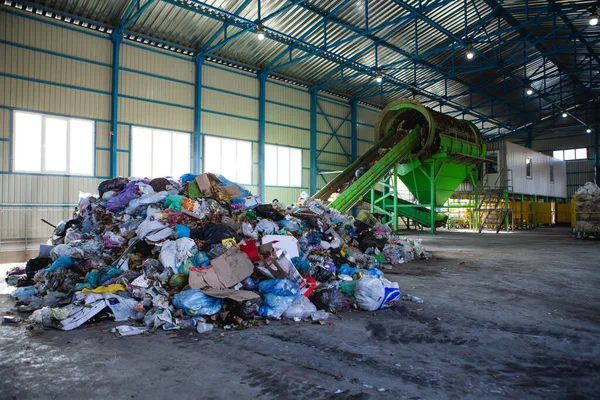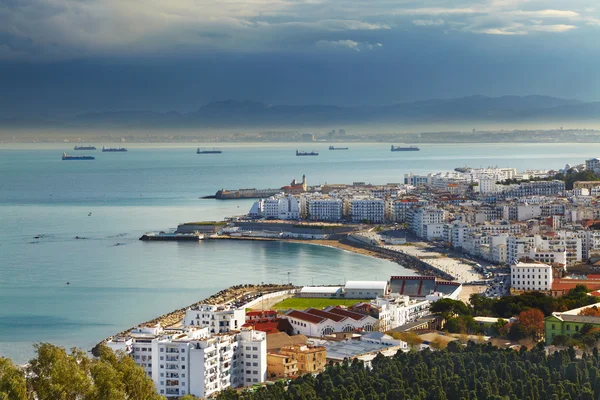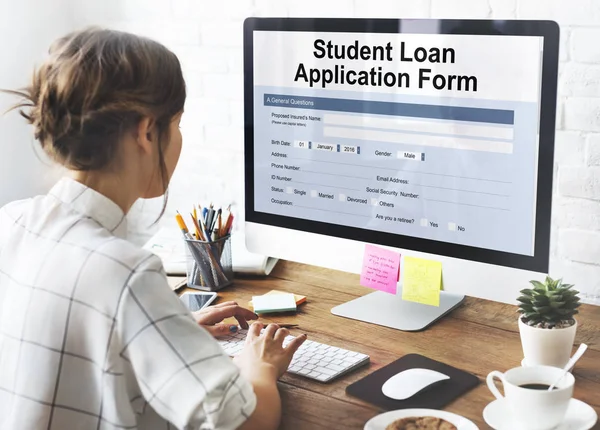Are you searching for the best business ideas to invest in Algeria?
Algeria, located in North Africa, is known for its diverse economy, with oil and gas contributing over 90% of export revenue. With a population exceeding 46 million and a GDP of $195 billion in 2022, it is the largest economy in the Maghreb region. The country faces challenges like limited electricity access (only 34% of the population has reliable power), post-harvest agricultural losses (up to 40%), and healthcare disparities, but these present opportunities for innovative solutions. The digital economy is booming, with over 20 million internet users, and tourism is expected to grow, driven by niche markets like eco-tourism.
In this blog post, you will learn the best 20 unique business ideas in Algeria. Each idea has a concept, uniqueness factor, market potential, and how to start. The ideas are organized by sector for clarity, with specific details and exact numbers where available.
Table of Contents
- Why Invest in Algeria
- Best Business Ideas in Algeria
- HIGH-CAPITAL INFRASTRUCTURE BUSINESS IDEAS IN ALGERIA
- TECHNOLOGY & INNOVATION OPPORTUNITIES IN ALGERIA
- SUSTAINABLE & GREEN BUSINESS IDEAS IN ALGERIA
- CULTURAL & TOURISM OPPORTUNITIES
- EDUCATION & SERVICES BUSINESS IDEAS
- Investment Climate and Strategic Considerations
- Risks and Challenges faving small businesses in Algeria
Why Invest in Algeria
Algeria offers several enablers for entrepreneurs:
Read Next: 20 Unique Business ideas in Kenya that never fail
- Government Support: Tax exemptions and reduced social security contributions for youth hires.
- Young Workforce: Over 40% of the population is under 25, with high literacy rates.
- Strategic Location: Access to African and European markets via trade agreements.
- Digital Growth: Increasing internet and smartphone penetration supports tech ventures.
- Cultural Assets: Unique handicrafts and cuisine enhance branding opportunities.
Best Business Ideas in Algeria
| Idea | Concept | Uniqueness Factor | Market Potential (2025) | How to Start |
|---|---|---|---|---|
| Solar-Powered Desalination Plants | Build solar-powered plants to desalinate seawater for coastal cities. | Combines renewable energy with water scarcity solutions. | Global desalination market to reach $22.6B, water-scarce North Africa. | Secure coastal land, partner with solar providers, leverage government incentives. |
| Agri-Tourism Farms | Develop farms for tourists to experience rural life, farm activities. | Combines agriculture with tourism, boosts rural economies. | Tourism 5.7% GDP, growing experiential travel. | Identify fertile regions, partner with farmers, market via travel blogs. |
| Eco-Friendly Fashion Brand | Create sustainable clothing using traditional textiles, recycled materials. | Blends cultural heritage with global ethical fashion demand. | Sustainable fashion market to reach $8.25B by 2030. | Source local materials, design collections, sell via e-commerce, social media. |
| Virtual Reality Cultural Tours | Develop VR experiences of historical sites like Casbah, for global audiences. | Promotes culture virtually, enhances tourism promotion. | VR market to reach $41B by 2028, education/tourism apps. | Partner with museums, develop apps, distribute via Oculus, Google Play. |
| Mobile Health Clinics | Operate solar-powered, telemedicine-equipped clinics for remote areas. | Addresses healthcare disparities, rural focus. | Improves rural health outcomes, reduces travel costs. | Equip vans, hire nurses, partner with NGOs, ensure connectivity. |
| Drone Delivery Services | Use drones for last-mile delivery in urban areas, reducing traffic. | Leverages drone tech for e-commerce, logistics efficiency. | African e-commerce market to grow at 15% CAGR to 2028. | Pilot in cities like Algiers, partner with e-commerce, comply with aviation rules. |
| AI-Powered Language Translation | Develop AI tools for Arabic, French, Tamazight translation for business, education. | Tailored for multilingual population, communication aid. | Global AI market to reach $1T by 2025, language focus. | Build linguist-AI team, create apps, market to businesses, schools. |
| Sustainable Fishing Cooperatives | Organize fishermen for eco-friendly practices, process seafood for export. | Preserves marine ecosystems, increases export potential. | Global seafood market at $250B, sustainability demand. | Establish cooperatives, train on practices, invest in processing, explore markets. |
| Green Hydrogen Production | Produce hydrogen using renewable energy for transport, industry. | Positions Algeria in clean energy, leverages sunshine, wind. | Green hydrogen market to reach $12.5B by 2030. | Set up pilot projects in solar-rich Sahara, partner with energy firms, seek support. |
| Cultural Exchange Platforms | Connect Algerians with global users for language learning, virtual tours. | Fosters global understanding, promotes culture online. | Platforms like Tandem have millions of users, cultural exchange demand. | Develop app/website, partner with schools, market via social media. |
| Biodegradable Packaging Manufacturing | Produce packaging from cassava starch, recycled plastics for e-commerce. | Meets sustainable packaging demand, reduces waste. | Biodegradable packaging market to reach $150B by 2027. | Source materials, set up unit, target retailers, ensure quality. |
| Renewable Energy Cooperatives | Community-owned solar, wind farms for local investment, energy benefits. | Promotes energy democracy, rural sustainability. | Only 34% have electricity, decentralized energy need. | Identify communities, set up projects, structure profit-sharing, seek funding. |
| Artisanal Product E-commerce Hub | Online marketplace for traditional crafts like carpets, jewelry, globally. | Connects artisans to buyers, preserves heritage. | Handicrafts market worth $35B, global appeal. | Develop website, partner with artisans, handle logistics, market internationally. |
| Vocational Training in Renewable Energy | Train youth in solar installation, maintenance for green economy. | Prepares workforce for renewables, skill gap filling. | Renewable energy sector growing, global investments $300B annually. | Develop curricula, secure funding, attract students, collaborate with industry. |
| Telemedicine Network | Set up centers linking rural patients with urban specialists via video. | Bridges healthcare gap, tech-driven solution. | Improves health outcomes, reduces costs for rural areas. | Establish hubs, partner with hospitals, train staff, ensure connectivity. |
| Urban Farming Initiatives | Promote rooftop gardens, vertical farms, community gardens in cities. | Enhances food security, urban sustainability. | Urban farming market at $15B globally, local demand. | Partner with building owners, train farmers, supply local markets, engage NGOs. |
| Eco-Tourism Lodges | Build sustainable lodges in parks for unique tourism, conservation focus. | Supports conservation, offers eco-friendly experiences. | Eco-tourism growing at 15% CAGR globally. | Identify parks, design eco-friendly, partner with conservation, market globally. |
| Fintech for SMEs | Develop mobile apps for loans, payments, financial tools for small businesses. | Tailored for underserved SME sector, digital inclusion. | Global fintech market to reach $786B by 2026. | Build partnerships with banks, develop apps, offer training, market to SMEs. |
| Waste-to-Energy Plants | Convert municipal waste into energy via incineration, anaerobic digestion. | Addresses waste, provides renewable energy source. | Waste-to-energy market worth $45B globally. | Conduct studies, secure land, partner with municipalities, seek investors. |
| Digital Nomad Hubs | Create co-working spaces, communities for remote workers, cultural experiences. | Attracts global talent, boosts local economy. | Digital nomad population to reach 35M by 2030. | Set up hubs in cities like Algiers, offer visa assistance, promote via networks. |
HIGH-CAPITAL INFRASTRUCTURE BUSINESS IDEAS IN ALGERIA
| HIGH-CAPITAL INFRASTRUCTURE | ||||||
| Business Opportunity | Investment Tier | Capital Required (USD) | Time to Profitability | Market Risk | Scalability Potential | Government Support |
| Solar-Powered Desalination | Large Scale | $60,000 – $300,000 | 2-3 years | Medium | Very High | Excellent |
| Green Hydrogen Production | Large Scale | $500,000+ | 3-5 years | Medium | Very High | Excellent |
| Waste-to-Energy Plants | Large Scale | $300,000+ | 3-4 years | Low | High | Very Good |
1. Solar-Powered Desalination Plants
Algeria faces a water scarcity challenge despite having over 3,000 hours of sunshine annually and 1,200 kilometers of coastline. This creates an exceptional investment opportunity where abundant solar energy can solve critical water shortages. The global desalination market is projected to reach $22.6 billion by 2027, with solar-powered systems addressing both cost and environmental concerns of traditional fossil fuel-powered plants.
Municipal water contracts provide stable revenue streams with 15-25 year terms, typically priced at $0.50-$1.20 per cubic meter. Government renewable energy incentives reduce initial capital requirements by up to 30%. A mid-scale facility producing 10,000 cubic meters daily can generate $1.8-4.4 million annually. Success with coastal installations creates expansion opportunities across Algeria’s Mediterranean coastline and potential technology export to neighboring countries.
2. Green Hydrogen Production
Algeria can transform from an oil exporter to a clean energy powerhouse by leveraging its Sahara Desert for hydrogen production. The European Union’s REPowerEU plan creates guaranteed demand for hydrogen imports, with requirements reaching 10 million tons annually by 2030. Algeria’s geographic position and renewable energy potential make it an ideal supplier for this massive market.
Initial pilot projects require $500,000 to $2 million, with successful operations attracting larger infrastructure investments of $50-200 million for commercial-scale production. Government support includes land allocation, tax incentives, and infrastructure development assistance. Strategic partnerships with European energy companies provide long-term purchase agreements that guarantee revenue streams in what’s expected to become a trillion-dollar industry.
3. Waste-to-Energy Plants

Algeria’s rapid urbanization creates mounting waste management challenges while cities struggle with energy demand. Waste-to-energy plants solve both problems simultaneously, processing municipal waste while generating clean electricity. The global waste-to-energy market is worth $45 billion, with proven technology reducing investment risk.
Dual revenue streams provide exceptional stability through waste processing fees from municipalities ($30-80 per ton) and electricity sales ($0.08-0.15 per kWh). A facility processing 500 tons daily can generate $8-15 million annually. Municipal partnerships provide 15-25 year contracts with inflation adjustments, while limited competition creates first-mover advantages in Algeria’s waste management sector.
TECHNOLOGY & INNOVATION OPPORTUNITIES IN ALGERIA
| TECHNOLOGY & INNOVATION BUSINESS IDEAS IN ALGERIA | ||||||
| Business Ideas | Investment Tier | Capital Required (USD) | Time to Profitability | Market Risk | Scalability Potential | Government Support |
| AI-Powered Language Translation | Mid-Scale | $60,000 – $120,000 | 12-18 months | Medium | Very High | Good |
| Drone Delivery Services | Mid-Scale | $60,000+ | 18-24 months | High | High | Moderate |
| Fintech for SMEs | Mid-Scale | $30,000 – $100,000 | 12-18 months | Medium | Very High | Good |
| Telemedicine Network | Mid-Scale | $50,000 – $150,000 | 18-24 months | Low | High | Very Good |
| Virtual Reality Cultural Tours | Mid-Scale | $60,000 | 12-18 months | Medium | High | Moderate |
| Cultural Exchange Platforms | Low-Scale | $15,000 – $50,000 | 6-12 months | Medium | Very High | Moderate |
4. AI-Powered Language Translation
Algeria’s trilingual reality—Arabic, French, and Tamazight—creates translation challenges that global platforms serve inadequately. This linguistic complexity represents a significant market opportunity for specialized solutions serving educational institutions, businesses, and government agencies. The global AI market is approaching $1 trillion by 2025, with specialized applications commanding premium pricing.
Developing AI models trained on Algerian linguistic patterns creates competitive advantages over generic platforms. Revenue streams include subscription models for businesses and education, transaction-based pricing for individuals, and government contracts for public services. Success in Algeria creates expansion opportunities across North Africa’s similar multilingual markets, with technology platforms adaptable for other regions.
5. Drone Delivery Services
Algeria’s urban congestion and underdeveloped logistics infrastructure create ideal conditions for drone delivery implementation. The African e-commerce market is expanding at 15% annually, reaching $75 billion by 2025, while Algeria’s urban concentration provides dense delivery markets. Early regulatory development allows first movers to influence policy frameworks.
Starting with high-value, time-sensitive deliveries like pharmaceuticals in Algiers, the model expands through partnerships with e-commerce platforms and retailers. Initial investment covers drone fleet acquisition, pilot training, and warehouse systems. Limited competition in Algeria’s delivery market creates first-mover advantages, with international partnerships providing technology access and local partners ensuring regulatory navigation.
6. Fintech for SMEs
Traditional banking has underserved Algeria’s small businesses despite SMEs representing over 90% of enterprises. With 40% of the population under 25 and smartphone penetration exceeding 20 million users, infrastructure for digital financial services is rapidly developing. The global fintech market is projected to reach $786 billion by 2026, with financial inclusion representing massive growth opportunities.
Starting with payment processing and point-of-sale systems, the platform expands to include lending, invoice financing, and business analytics. Revenue comes from transaction fees, lending margins, and subscription services for premium features. Government initiatives supporting youth employment create additional demand for small business financing and support services.
7. Telemedicine Network
Algeria’s healthcare system has significant geographic disparities, with rural regions lacking specialist access despite housing 34% of the population. Telemedicine leverages existing internet infrastructure to deliver healthcare services cost-effectively. Government healthcare initiatives and international development funding support digital health solutions.
Telemedicine centers in rural areas connect patients with urban specialists through high-speed internet and basic diagnostic equipment. Services range from routine consultations to specialist referrals and chronic disease management. Revenue combines fee-for-service payments, government contracts, and insurance partnerships, with preventive care programs reducing long-term costs while generating recurring income.
8. Virtual Reality Cultural Tours
Algeria’s UNESCO World Heritage sites like Timgad remain largely unknown globally despite their historical significance. VR technology can monetize cultural heritage by creating immersive experiences for education and tourism markets. The VR industry is projected to reach $41 billion by 2028, with educational and cultural applications showing strong growth.
Creating immersive experiences of historical sites with expert narration serves educational institutions seeking engaging history content and travelers interested in virtual tourism. Revenue streams include licensing to schools, tourism platforms, and cultural institutions. International partnerships with VR distributors provide global market access while preserving and promoting Algeria’s cultural heritage.
9. Cultural Exchange Platforms
Algeria’s rich cultural heritage and multilingual population create opportunities for online platforms facilitating language learning and cultural exchange. The language learning market is growing rapidly, with platforms demonstrating strong user engagement and monetization potential. Digital platforms can connect Algerian culture teachers with global learners interested in Arabic, French, or Berber languages.
Development focuses on user-friendly applications connecting cultural educators with international learners through video calls, cultural workshops, and virtual experiences. Revenue comes from platform commissions, premium memberships, and partnership fees with educational institutions. Social media marketing and partnerships with cultural organizations build user base and credibility.
SUSTAINABLE & GREEN BUSINESS IDEAS IN ALGERIA
| SUSTAINABLE & GREEN | ||||||
| Business Ideas | Investment Tier | Capital Required (USD) | Time to Profitability | Market Risk | Scalability Potential | Government Support |
| Mobile Health Clinics | Mid-Scale | $120,000+ | 18-24 months | Low | High | Excellent |
| Renewable Energy Cooperatives | Mid-Scale | $100,000+ | 2-3 years | Low | High | Excellent |
| Biodegradable Packaging | Mid-Scale | $60,000+ | 12-18 months | Medium | High | Good |
| Sustainable Fishing Cooperatives | Mid-Scale | $80,000+ | 18-30 months | Medium | High | Good |
| Urban Farming Initiatives | Low-Scale | $20,000 – $80,000 | 6-12 months | Low | High | Good |
10. Mobile Health Clinics
Rural Algeria faces significant healthcare access challenges, with 34% of the population lacking reliable medical services. Solar-powered mobile clinics equipped with telemedicine capabilities can bridge this gap while supporting government healthcare initiatives. The healthcare market is expanding with population growth, while renewable energy integration addresses power reliability issues.
Clinics operate as solar-powered vehicles with medical equipment and telemedicine connections to urban hospitals. Services include routine checkups, emergency care, and specialist consultations via video links. Revenue combines government healthcare contracts, patient fees, and NGO partnerships. The model scales through franchise arrangements and partnerships with international health organizations.
11. Renewable Energy Cooperatives
Only 34% of Algerians have reliable electricity access, creating massive demand for energy solutions. Community-owned solar installations allow local investment while generating returns for participants. Government renewable energy incentives and rural electrification programs support cooperative development.
Cooperatives install solar systems in underserved communities, with residents investing and sharing profits from electricity sales. Revenue comes from utility payments and government incentives for renewable energy production. The model promotes energy democracy while providing stable returns to community investors. Successful cooperatives replicate across rural Algeria, creating a network of community-owned energy systems.
12. Biodegradable Packaging Manufacturing
Algeria’s retail sector is growing while environmental consciousness increases globally. Biodegradable packaging made from local materials like cassava starch addresses plastic waste while meeting retailer demand for sustainable solutions. The biodegradable packaging market is projected to reach $150 billion by 2027.
Manufacturing focuses on food packaging, shopping bags, and agricultural applications using locally sourced materials. Revenue comes from sales to retailers, food companies, and agricultural businesses. Government environmental initiatives may provide incentives for sustainable manufacturing. Export opportunities exist as global companies seek sustainable packaging suppliers.
13. Sustainable Fishing Cooperatives
Algeria’s Mediterranean coastline supports fishing communities that face overfishing pressures and limited market access. Sustainable fishing cooperatives can organize fishermen around eco-friendly practices while processing seafood for premium export markets. The global seafood market is worth $250 billion, with sustainable products commanding premium pricing.
Cooperatives train fishermen in sustainable methods, invest in processing facilities, and develop export relationships with European and Middle Eastern markets. Revenue comes from premium seafood sales and processing services. Sustainability certifications enable access to high-value markets while preserving marine ecosystems for long-term productivity.
14. Urban Farming Initiatives
Algeria’s urban areas face food security challenges while vacant rooftops and urban spaces remain underutilized. Urban farming provides fresh produce while reducing food transportation costs and environmental impact. The global urban farming market is worth $15 billion and growing rapidly.
Initiatives focus on rooftop gardens, vertical farms, and community gardens in cities like Algiers and Oran. Partnerships with building owners provide space while training programs develop urban farming skills. Revenue comes from fresh produce sales to restaurants, markets, and consumers. Government urban development programs may provide support for sustainable city initiatives.
CULTURAL & TOURISM OPPORTUNITIES
| CULTURAL & TOURISM | ||||||
| Business Ideas | Investment Tier | Capital Required (USD) | Time to Profitability | Market Risk | Scalability Potential | Government Support |
| Agri-Tourism Farms | Mid-Scale | $50,000 – $150,000 | 12-24 months | Medium | High | Very Good |
| Eco-Tourism Lodges | Mid-Scale | $100,000+ | 18-36 months | Medium | High | Good |
| Artisanal Product E-commerce | Low-Scale | $10,000 – $40,000 | 6-12 months | Medium | Very High | Moderate |
| Digital Nomad Hubs | Mid-Scale | $80,000+ | 12-18 months | Medium | High | Moderate |
15. Agri-Tourism Farms
Algeria’s agricultural heritage and growing tourism market create opportunities for experiential travel. Farms offering activities like olive picking and date harvesting appeal to tourists seeking authentic cultural experiences. Tourism contributed $7 billion to GDP in 2021, with experiential travel showing strong growth.
Farms in regions like Ghardaïa develop tourist activities alongside agricultural production, offering accommodation, cultural experiences, and local food. Revenue combines agricultural sales, tourism fees, and accommodation charges. Marketing through platforms like Airbnb Experiences reaches international travelers. The model supports rural economies while preserving agricultural traditions.
16. Eco-Tourism Lodges
Algeria’s national parks and natural areas offer unique experiences for eco-conscious travelers. Sustainable lodges provide accommodation while supporting conservation efforts and local communities. Global eco-tourism is growing at 15% annually, with travelers seeking authentic environmental experiences.
Lodges in national parks focus on minimal environmental impact while offering guided nature experiences, wildlife viewing, and cultural interactions. Revenue comes from accommodation fees, guided tours, and activity charges. Partnerships with international tour operators and environmental organizations provide marketing reach and credibility.
17. Artisanal Product E-commerce Hub
Algeria’s traditional crafts like pottery, jewelry, and textiles have global appeal but limited market access. As a business idea, set up an online marketplaces can connect artisans with international customers while preserving cultural heritage. The global handicrafts market is worth $35 billion, with online sales growing rapidly.
The platform provides e-commerce services, international shipping, and marketing support for artisans producing traditional crafts. Revenue comes from platform commissions, shipping fees, and premium seller services. Partnerships with cultural organizations and tourism boards provide artisan access and credibility. Quality control and authenticity verification ensure customer satisfaction and repeat business.
18. Digital Nomad Hubs
The global digital nomad population is projected to reach 35 million by 2030, with remote workers seeking affordable destinations with good internet and cultural experiences. Algeria’s low cost of living, rich culture, and improving internet infrastructure create opportunities for co-working spaces targeting remote workers.
Hubs provide co-working facilities, accommodation assistance, and cultural experiences for digital nomads. Revenue comes from membership fees, accommodation partnerships, and cultural tour services. Marketing through digital nomad networks and social media builds awareness. Government visa policies for remote workers can significantly impact market potential.
EDUCATION & SERVICES BUSINESS IDEAS
| EDUCATION & SERVICES | ||||||
| Business Ideas | Investment Tier | Capital Required (USD) | Time to Profitability | Market Risk | Scalability Potential | Government Support |
| Vocational Training (Renewable Energy) | Low-Scale | $30,000 – $100,000 | 12-18 months | Low | High | Excellent |
| Eco-Friendly Fashion Brand | Low-Scale | $30,000 | 6-12 months | High | High | Moderate |
19. Vocational Training in Renewable Energy
Algeria’s renewable energy development creates demand for skilled technicians in solar installation, maintenance, and system design. Training programs can prepare youth for employment in the growing clean energy sector while supporting industry development. Global renewable energy investments exceed $300 billion annually, creating widespread job opportunities.
Training centers develop curricula for solar panel installation, wind turbine maintenance, and energy system design. Revenue comes from student fees, government training contracts, and employer partnerships. Industry certifications ensure job placement while partnerships with energy companies provide internship and employment opportunities.
20. Eco-Friendly Fashion Brand
Global sustainable fashion demand is growing while Algeria’s traditional textiles and craftsmanship offer unique value propositions. Fashion brands using traditional techniques and sustainable materials can access premium markets while preserving cultural heritage. The sustainable fashion market is expected to reach $8.25 billion by 2030.
Brands focus on traditional Algerian textiles and sustainable production methods, employing local artisans and using eco-friendly materials. Revenue comes from direct sales through e-commerce platforms and boutique retailers. International marketing emphasizes authenticity and sustainability while partnerships with fashion influencers build brand awareness. Export opportunities exist as global consumers seek unique, sustainable fashion options.
Investment Climate and Strategic Considerations
Algeria offers substantial investor protections through tax incentives including up to 10-year exemptions for new ventures, workforce advantages with high literacy rates and growing tech adoption, strategic location providing access to both African and European markets, and government support with reduced bureaucracy for foreign investors and dedicated industrial zones. Below are the best strategic entry points for the Algerian Market
- Local Partnerships: Collaborate with cooperatives for supply chains (e.g., artisans for e-commerce).
- Digital Platforms: Use Instagram and TikTok for low-cost marketing to reach youth.
- Government Programs: Apply for tax incentives and industrial zone access.
- Pilot Projects: Test ideas in urban areas like Algiers before scaling to rural regions.
- Community Engagement: Build trust through cultural sensitivity, as Algerians value personal rapport.
Risks and Challenges faving small businesses in Algeria
Starting a business in Algeria involves challenges:
- Bureaucracy: Registration processes can take about a month, with fees starting at DZD 490.
- Funding Access: Limited capital for SMEs, despite government incentives.
- Infrastructure Gaps: Rural areas lack reliable electricity and internet.
- Market Competition: Established players dominate retail and food sectors.
- Regulatory Compliance: Navigating French and Islamic legal systems is complex.
Key risk mitigation strategies include partnering with established local businesses to navigate regulatory requirements, starting with pilot projects in urban areas before rural expansion, leveraging government incentive programs to reduce initial capital requirements, and focusing on sectors aligned with national diversification priorities.




A lot of business opportunities in Algeria. I am very much interested